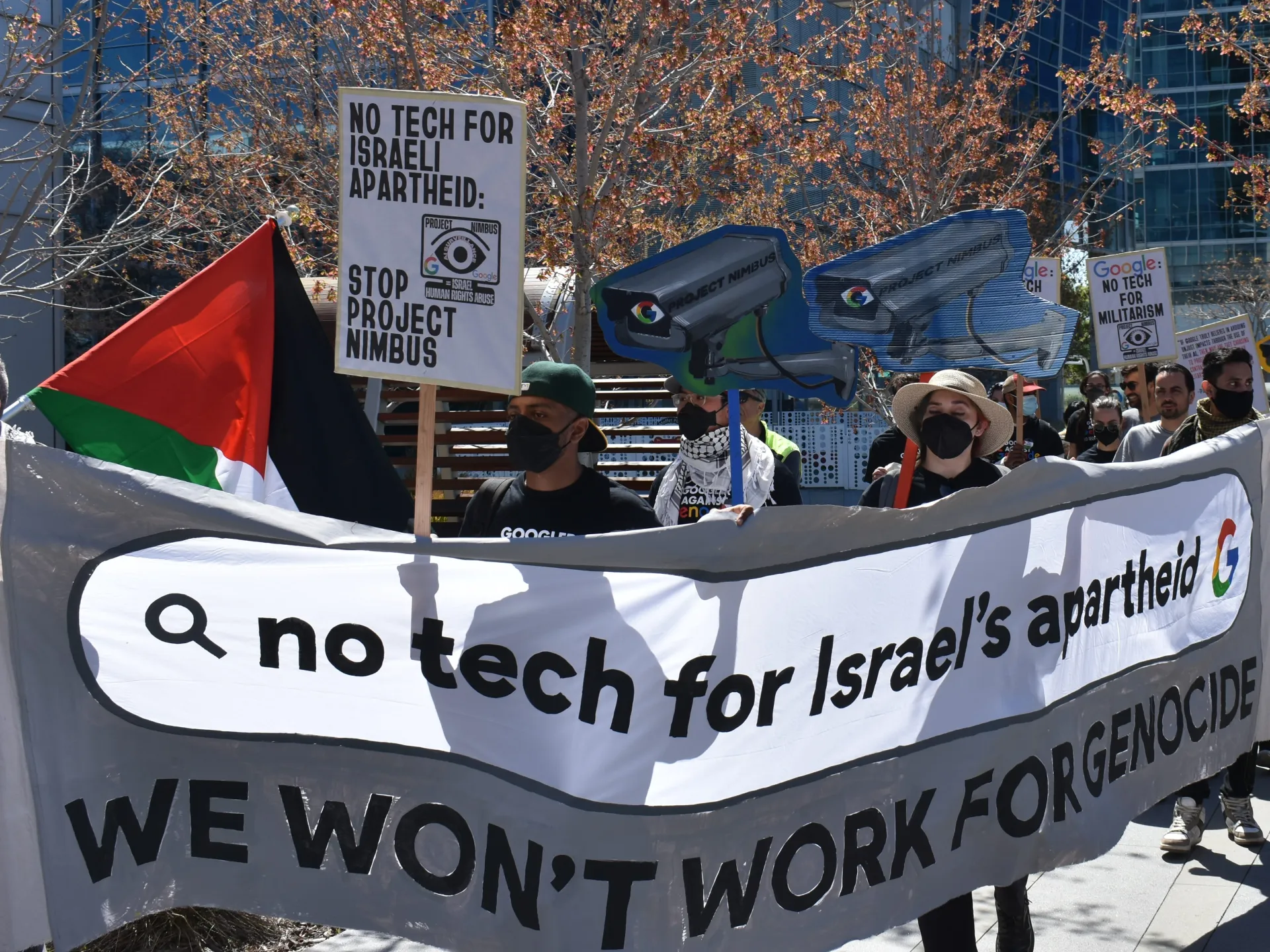The collaboration between US Big Tech companies and Israel’s security apparatus has come under intense scrutiny in recent years, as evidence mounts of their involvement in facilitating human rights abuses against Palestinian populations. This article explores the complex ethical and moral dilemmas surrounding this partnership and calls for greater accountability and transparency from these companies.
Understanding the Role of US Big Tech: Facilitating Technological Advancements
The involvement of US Big Tech companies in Israel’s AI-powered initiatives raises complex ethical and moral questions regarding their complicity in the perpetuation of human rights abuses. These companies, known for their cutting-edge technology and innovation, have actively collaborated with Israeli counterparts to develop sophisticated AI systems. While these advancements may have legitimate uses in various fields, including healthcare and transportation, their application in military and surveillance contexts raises concerns. By providing technology and expertise to Israeli security forces, US Big Tech companies risk contributing to the surveillance and control of Palestinian populations, further entrenching the system of apartheid and occupation. Moreover, the lack of transparency and accountability surrounding these partnerships makes it difficult to assess the full extent of their impact on human rights in the region.
Ethical Considerations and Corporate Responsibility
The collaboration between US Big Tech and Israel’s security apparatus also raises questions about corporate responsibility and ethical oversight. While these companies often tout their commitment to ethical AI principles and human rights, their partnerships with governments engaged in systemic human rights violations undermine these claims. Critics argue that by prioritizing profits over principles, US Big Tech companies are effectively enabling state repression and violence against marginalized communities. Calls for greater transparency, accountability, and ethical guidelines have been met with mixed responses from these companies, highlighting the need for stronger regulatory frameworks and civil society pressure to hold them accountable. As stakeholders, consumers, and investors become increasingly aware of these issues, there is growing momentum for greater scrutiny of US Big Tech’s business practices and their implications for human rights around the world.
Activism and Resistance: Challenging Corporate Complicity
In response to the complicity of US Big Tech companies in Israel’s AI-powered repression, grassroots activists and advocacy groups have mobilized to raise awareness and pressure these companies to change their behavior. Campaigns targeting specific companies, such as Amazon’s sale of facial recognition technology to law enforcement agencies, have gained traction, leading to public scrutiny and internal debates within these companies. Divestment campaigns, shareholder resolutions, and employee activism have also put pressure on US Big Tech companies to reassess their partnerships and policies related to Israel and Palestine. While these efforts face significant challenges, including powerful lobbying groups and entrenched corporate interests, they represent important avenues for holding these companies accountable and challenging the normalization of oppression and violence in the name of technological progress.
The complicity of US Big Tech:
AI-powered repression of Palestinian communities demands urgent attention and action. As consumers, stakeholders, and global citizens, we must hold these companies accountable for their role in perpetuating human rights abuses and demand greater transparency, accountability, and ethical oversight. By raising awareness, mobilizing grassroots activism, and advocating for change, we can work towards a future where technology is used to promote justice, equality, and human rights for all.
In recent news:
Revelations regarding the extent of US Big Tech’s involvement in Israel’s AI-powered repression have sparked widespread outrage and calls for accountability. Investigative reports have shed light on the specific technologies and partnerships that enable surveillance and control over Palestinian populations, prompting renewed scrutiny of these companies’ business practices. The news has prompted protests and demonstrations outside the headquarters of tech giants, with activists demanding an end to complicity in human rights abuses.
Furthermore:
Statements from human rights organizations and international bodies have condemned the role of US Big Tech in perpetuating the Israeli occupation and apartheid regime. Calls for investigations into potential violations of international law and corporate complicity in human rights abuses have intensified, placing pressure on governments and regulatory bodies to take action. The news coverage has also prompted internal discussions within US Big Tech companies, with employees raising concerns about their companies’ involvement in supporting oppression and violence.
Moreover, the growing awareness of US Big Tech’s role in Israel’s AI-powered repression has sparked debates about the ethical responsibilities of tech companies and the need for stronger regulatory oversight. Policymakers are facing calls to introduce legislation that holds companies accountable for their actions abroad and ensures that their technologies are not used to facilitate human rights abuses. As the news continues to unfold, the spotlight remains on US Big Tech’s complicity in Israel’s occupation and the urgent need for meaningful change to uphold human rights and justice.



